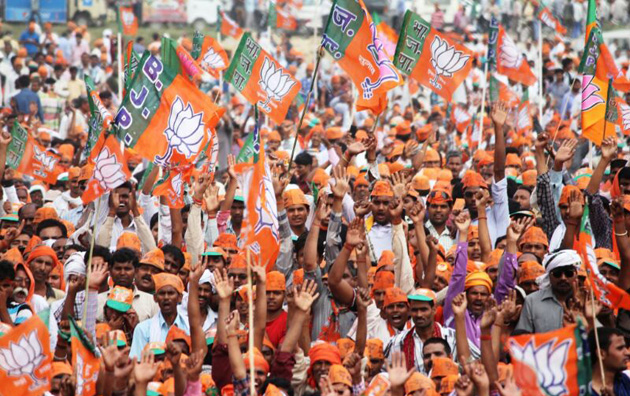Economists criticize data misuse
March 20, 2019 | Expert Insights

Top economists and social scientists studying India have published an open letter expressing alarm at the politicisation of economic data by Prime Minister Narendra Modi’s government, highlighting the growing debate over the credibility of India’s official growth estimates.
Background
The 2019 Indian general election is scheduled to be held in 7 phases from 11 April 2019 to 19 May 2019 to constitute the 17th Lok Sabha. The counting of votes will be conducted on 23 May 2019 and the results will be declared on the same day.
As of at least 7 February 2019, the NDA government denied the existence of any job crisis. Prime Minister Narendra Modi claimed that jobs are not lacking but data on jobs has been lacking. The government has delayed releasing the official report on unemployment. Two government officials, including the acting chairperson of National Statistical Commission, resigned, protesting the withholding of the Annual Survey on Employment and Unemployment for the year 2017–18. A leaked version of the report showed the unemployment rate in India to be at a 45-year high during 2017–2018. The government has claimed that the report was not final. But the acting chairperson who resigned, has alleged that the government was suppressing the report. A former chairman of the NSC, said, on condition of anonymity, that the report approved by the NSC would be the final version.
On 7 February 2019, an estimated 30 thousand youth protested the absence of jobs in the National Capital Region as part of a “Young India Adhikar” march.
Analysis
In a rare public appeal on a highly technical subject, 108 economics and social science professors from top US and Indian universities wrote that India’s statistical machinery had “come under a cloud for being influenced and indeed even controlled by political considerations”. “Any statistics that cast an iota of doubt on the achievement of the government seem to get revised or suppressed on the basis of some questionable methodology,” they wrote.
The signatories — who include Massachusetts Institute of Technology’s Abhijit Banerjee and Esther Duflo, call on the government to “restore access and integrity to public statistics”. The unusual clarion call over India’s statistical integrity comes amid mounting scepticism about the country’s official gross domestic product estimates, which have grown increasingly opaque and out of sync with other leading indicators, such as private investment and credit growth.
The National Statistics Commission, an autonomous body set up in 2005 to raise standards of collection and analysis, collapsed in January when its last remaining independent members resigned to protest against New Delhi’s suppression of a survey on employment and unemployment. The survey was highly anticipated by researchers studying India’s labour market and the commission had approved it for release. Local media that obtained a leaked copy of the study reported that it showed unemployment at a 45-year high. Mr. Modi was elected on a promise to accelerate economic growth and create millions of new jobs.
India’s elaborate statistical system was once the envy of the developing world and known for its expansive production of data on economic and social issues. Economic data were sometimes questioned on technical grounds but were seen as impartial. “Never were allegations made of political interference influencing decisions and the estimates themselves,” the economists said.
Mr. Modi says India’s economy has grown faster during his five-year tenure than at any time since the country began to liberalise its economy in 1991. He has also dismissed the negative effects of his draconian November 2016 cash ban, when nearly 85 per cent of cash in circulation was invalidated overnight.
The ban on the use of the cash visibly shook the economy, battering the property industry and closing many small enterprises. Yet in January, New Delhi recently revised its GDP growth estimates for the period, saying economic growth had accelerated to 8.2 per cent — the highest level of growth in a decade — during the financial year ending March 2017, despite the severe disruption.
The economists’ appeal, entitled Economic Statistics in a Shambles, said that “statistical integrity” was crucial. “This seems to be at variance with the evidence marshalled by many economists,” the appeal said. It also expressed concern about the revision of India’s GDP data collection, following the introduction of a new data series, with a new base year, in 2015.
Assessment
Our assessment is that economic data should not be misused or manipulated for electoral gains under any circumstances. We believe that the economists are right to protest this misuse, and we also feel that pertinent issues like unemployment should be raised for public consideration during an election year.








Comments